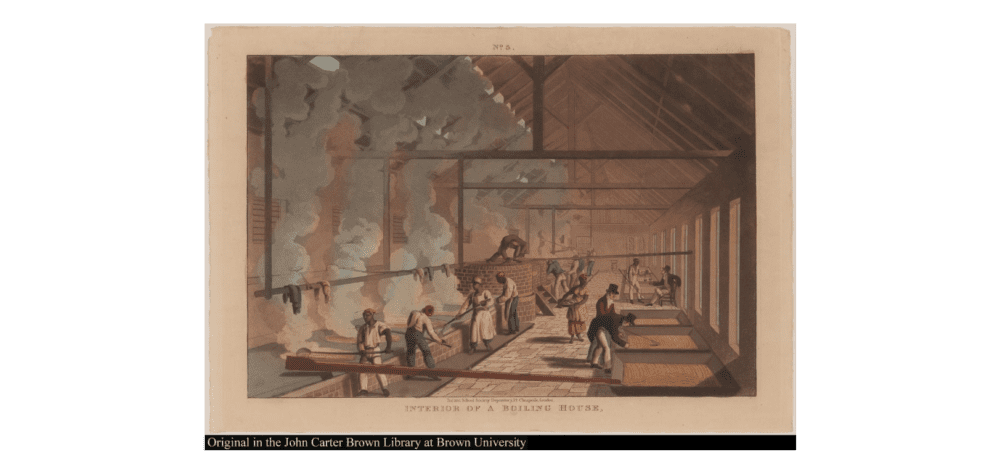In the sixteenth century, the Spanish and Portuguese began to transport enslaved Africans to their colonies in the Americas, followed by other European nations. By the seventeenth and eighteenth centuries, molasses and rum were essential to the New England economy. Rhode Island controlled up to 60 percent of the slave trade to North America. Slave traders from New England, Portugal, the Netherlands, Spain, France, and England brought enslaved people to the Caribbean in exchange for molasses. New Englanders turned the molasses into rum and traded it across the Atlantic to purchase more enslaved Africans. Great Britain’s 1733 Molasses Act levied a tax on molasses imported from non-British colonies in the West Indies. To avoid paying the tax, ships began smuggling molasses. In this lesson, students
will explore Rhode Island’s unique role in the Triangular Trade.
Part of a series
Expansive History Initiative
Part of a series
Revolutionary Ideals
Support the teaching and learning of history
Your support of National History Day is an investment in the future
Judges needed
Judges make the NHD contest possible. See how you can provide students a high-quality educational experience





